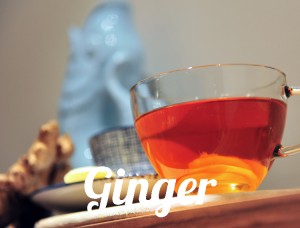Ginger health ayurveda
Ginger health Ayurveda – an explosive root
In the East and in Asia ginger has been, for time immemorial, greatly appreciated as a healing agent. Ginger is a plant whose underground stem or root extends horizontally, much like a hand.
Ginger in Ayurveda and his effect on the doshas: Ginger reduces Vata and Kapha. In it´s dry form it can increase Pitta, the fresh ginger does not increase Pitta. Ginger is light, dry and hot-penetrant. It stimulates agni (digestión fire) and our appetite. It has also a anti flatulence and anticonvulsant effect. It´s good for the voice, helps with bronchitis, asthma and arthritis. In Ayurveda, ginger is used for the cure and prevention of various diseases and its daily use in the kitchen is highly recommended.
Current research has confirmed that: ginger contains cingibereno, curcumeno, sesquiphellandrene and a volatile oil with the spicy substance, gingerol . These substances have an antibacterial effect, they decrease blood pressure, they are natural diuretics, and they act as inhibitors of tumors and infections. They also have anti-rheumatic and antiviral properties, they dilute the blood, and they stimulate the heart muscle. Fresh ginger is especially effective against travel sickness, vomiting, gas, and colds with a fever. Jet lag, for example, is more easily overcome taking ginger.
Ginger Infusion
Take 4 – 5 thin slices of ginger, pour hot water over them and allow to stand for about 10 minutes. Add a bit of lime juice and honey.
Ginger Infusion – apple – rooibos
Prepare a desired amount of rooibos tea.
Boil 2 parts rooibos tea, 1 part apple juice, 4 – 5 thin slices of ginger for 5 minutes and leave to settle before drinking.
A spicy fruit winter warmer! Freshly grated ginger adds a touch of warmth and spice to many dishes such as curries, stews or soups. It is especially welcome in winter.




